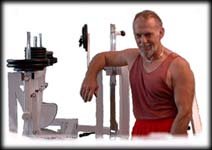 Doctors 'failing' to promote elderly exercise
Doctors 'failing' to promote elderly exerciseDoctors have been accused of failing to encourage elderly people to take exercise that would be beneficial for their general health.
There is compelling evidence for the benefits of regular exercise in old age.
However, Professor Marion McMurdo, of the Department of Medicine, University of Dundee, argues that the medical profession has devoted too much of its energy to finding reasons why older people should not exercise, and too little to why they should.
Writing in the British Journal of Sports Medicine, Professor McMurdo argues that doctors and often the elderly themselves fear that more damage is likely to be done by exercising in old age, or that chronic disease has its roots earlier in life, so there is little point trying to reverse the process.
But she says that this attitude contributes to increasing levels of disability and health care costs.
Professor McMurdo says that misconceptions abound about exercise in later life.
First, people think that for exercise to truly benefit, it has to be vigorous, which is a major turn off for the elderly.
Lycra-clad image
Despite the evidence to the contrary, she writes: "Public health advice has failed to shake off the high-tech lycra-clad image of aerobic exercise and physical fitness, and embrace the concept of health and physical activity - walking, dancing, gardening, or playing with the grandchildren."
Secondly, there is no such thing as the inevitability of decline with old age or the inability to train elderly muscles, says Professor McMurdo.
In 20 years no pensioner has been injured at the University of Dundee's over-60s exercise class, which attracts around 1,000 people a week, she says.
The fact that the elderly in institutional settings are missing out on activity is of concern, she says, and the time has come for a radical rethink in all those facilities that care for the elderly, including hospitals and daycare centres.
"A public health approach to an ageing society is long overdue," she concludes.
"Elderly people must be informed that regular physical activity is both appropriate and desirable in old age, and the older community should be invovled in developing a range of services and facilities to back this up."
Charity Age Concern says much research has shown the benefits of "simple, inexpensive exercise" such as walking.
Studies in the US and UK have shown improved muscle strength in over 70s who trained three times a week for three months; a reverse in declining lung capacity following a walking programme for over 70s; and a doubling of leg strength after a weights programme.
Sally Greengross, director general of Age Concern, said: "Fitness is not just for the young or agile. No matter how late in life you start, by gradually increasing the amount of excercise you do you can improve your health and well-being.
"Anyone of any age can join in; it's about finding an activity which suits you."
By BBC News Health Section
http://news.bbc.co.uk/1/low/health/459932.stm
